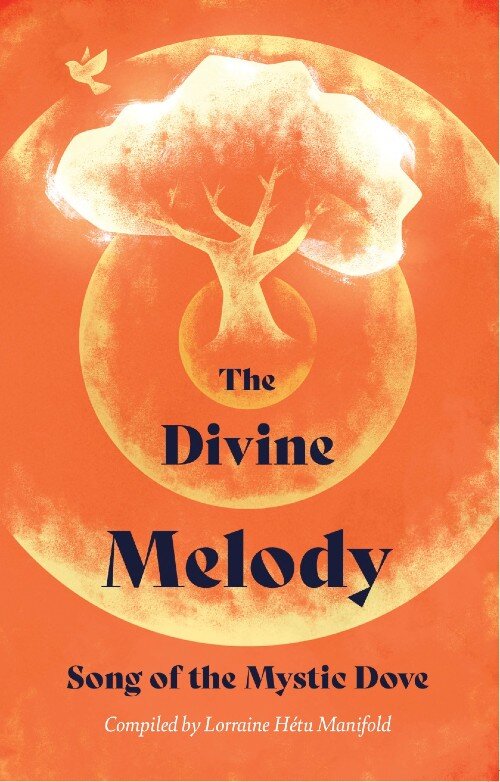
The Divine Melody: Song of the Mystic Dove
Compiled by Lorraine Hétu Manifold
Review by SANDRA LYNN HUTCHISON
This compilation overflows with beauty, and as the only substantial compilation of Bahá’í Writings about music currently available in English, it is an important addition to the compilations of Bahá’í texts that have been published in book form. These verses were gathered by someone with an intimate knowledge of and passion for the subject, and it shows. Lorraine Hétu Manifold is well known in Australia and beyond for her choral work, as a conductor and composer, and it seems to me that her passion for her music spills over into this book. Artfully compiled by someone who not only practices music but believes in its power to heal, uplift, and educate the human soul, this collection truly is, as the book blurb puts it, “a collection of gems.”
As Hétu Manifold told me when I inquired about the origins of the compilation, when she began to explore the relationship between the Word of God and music, she found countless references to God’s word as a melody sung by birds: the Mystic Dove, the Nightingale of Paradise, the Bird of Eternity, and the Birds of Holiness — to name a few. As she also learned in the course of her research, the Word of God is often described in the Bahá’í Writings as a kind of melody: for example, the “celestial Melody,” the “Melody of the Supreme Concourse,” the “melodies of unity,” and the “soul-elevating harmony of heaven.”
Hétu Manifold explained that she already knew the importance of music to the education of children. In the words of ‘Abdu’l-Bahá: “It is incumbent upon each child to know something of music . . .” She had no doubt about its importance in individual and community life, but when she delved deeper into the Bahá’í Writings in her search for references to song, birds, anthems, singing, and chanting, she was surprised and intrigued by the panoply of diversely-themed but intertwined verses she discovered, and consequently decided that she would like to share this wealth of verses with others.
In the first chapter of The Divine Melody, Hétu Manifold highlights excerpts from the Writings that speak of God’s Word as a divine melody sent down to humanity. This chapter also includes prayers for humanity to “hear” the melody and so recognize the truth of God’s revelation for this day. The second chapter explores the call of God for humanity to “sing” His teachings and so share His melody and also includes prayers for assistance with this task. The third chapter focuses on the Mashriqu’l-Adhkár and the final chapter on the need to exert effort to make music of God’s melodies.
As this compilation clearly demonstrates, and as Hétu Manifold herself clearly believes, the Word of God is a melody sung by the “Mystic Dove,” Bahá’u’lláh Himself, and it is our spiritual calling to share this “melody” with others.

